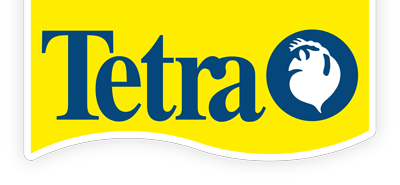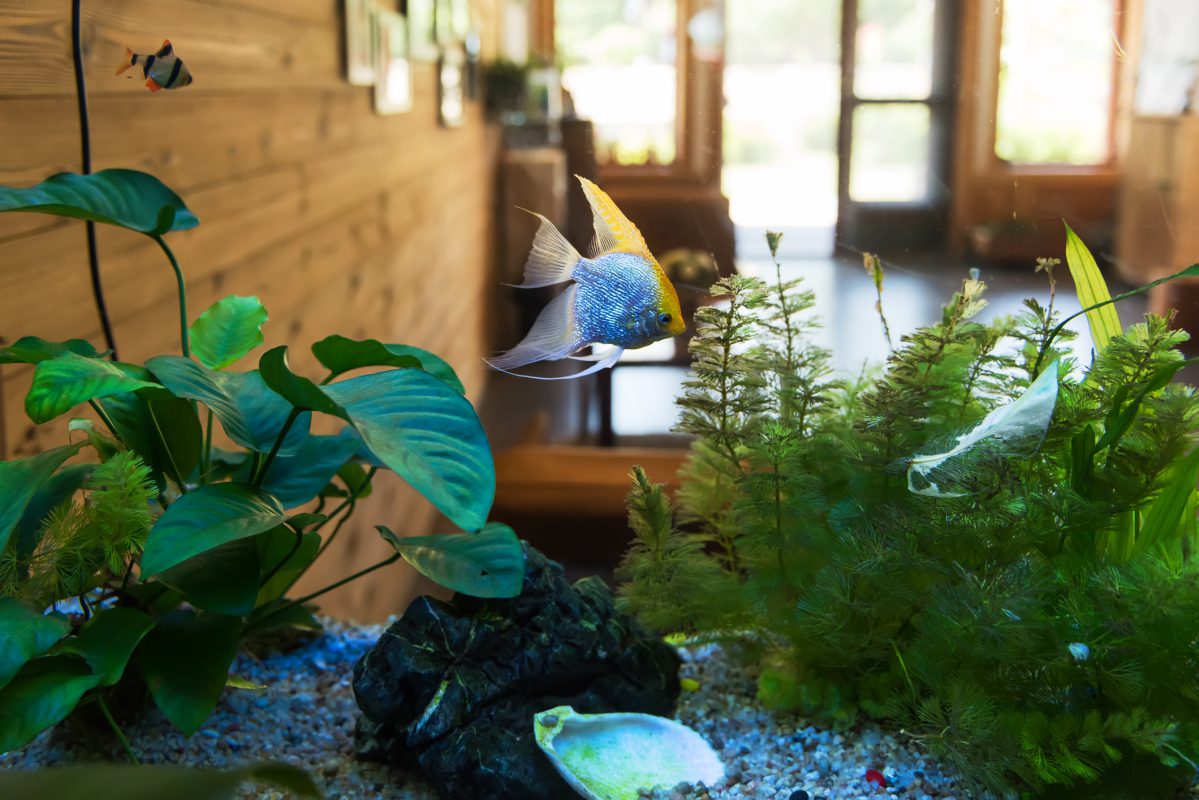Before considering why we should ensure our fishes are fed whilst we are away from our aquarium or pond during the holidays it is worth reminding ourselves why we feed fish in the first place! The diet of any animal contains proteins, fats, carbohydrates, vitamins and minerals as these are required for the production of new tissue as the animal grows and repairs or recycles transient tissues such as blood cells. These nutrients are also used as energy sources to power muscle movement, nervous communication and numerous other physiological and biochemical processes.
Different animals require variable amounts of these nutrients. For a community of fishes in the average tropical aquarium, goldfish tank or pond, fats and proteins are of prime importance as an energy source. These typical ornamental species have a gastrointestinal tract that is different from ours in one important respect – the majority of common ornamental fishes lack a stomach so are unable to store large infrequent meals. In the wild, many of our aquarium and pond occupants’ ancestors would have been constantly foraging and feeding on low nutritional value items which is why there was no need for a distensible-walled stomach. In addition, the lack of high protein in the diet means efficient protein digestion in an acidic environment is unnecessary. This is in comparison to carnivorous fish which eat infrequent, large, protein-rich meals and therefore require a distensible-walled, acid-containing stomach to store and efficiently digest their meal.
When it comes to our typical community aquarium, goldfish aquarium or garden pond we are looking to feed our fish small regular amounts of food – as much as the fish will eat in 2-3 minutes 2-3 times per day. If we can feed less, with a greater frequency, even better as this caters for the constant foraging behaviour and the steady trickle of food through the gut. This is fine when we are around our tanks daily, feeding perhaps morning, afternoon and evening, however we do not want to be slaves to our aquaria or pond – us fishkeepers need a break too! One of the biggest concerns we hear at Tetra when talking with prospective new fishkeepers is “how do I feed the fish when I go on holiday?”.
Imagine we have a matured tropical community aquarium with all the usual suspects within –various tetras, angelfish, corydoras and we have two glorious weeks in a sunny climate booked. Passport ready, suitcase packed, taxi booked – what options are open to us for feeding the fish while we are away?
Let us consider the first option, to do nothing. Fish can survive periods with no food in the wild surely? The impacts of fasting on a range of fishes has been studied, but the effects are far from clear. Studies in carp (Cyrprinus carpio), show the short-term response to fasting involves mobilisation of fat reserves for energy primarily in the first phase which can be up to eight days. If fasting continues then the fish starts to raid its own protein stores for energy leading to muscle wasting.
Many fishes are able to adapt to a lack of food in their environment and decrease their metabolism accordingly. However, this fasting usually accompanies some environmental cue such as a drop in temperature. Studies in salmon have shown that during winter fasting there are marked changes in the length, thickness and surface area of the intestinal layer. A finding that was interestingly also found in the marine blue damselfish (Pomacentrus coelestis) when they were fasted for 13 days mimicking the time in transit in the ornamental supply chain. In these species this has consequences for digestive efficiency when the fasting period is over and feed should be offered at progressively increasing fractions of the pre-fasting feed rate.
In tropical fishes it can be a rise in water temperature as seen in the dry season that is associated with the lack of food and enforced fasting. Hoplias malabaricus, an Amazonian carnivore characin can survive up to 180 days without food, interestingly the drought season of its habitat rarely lasts longer than this.
Therefore, if there is an ability of the fish to adapt to fasting this will usually be accompanied by environmental cues warning the fish that a dearth of food is coming. We do not have control of these environmental cues in the aquarium and especially in the garden pond and so fasting the fish is not an option.
Holiday Foods
Holiday foods are one option for feeding fish over the period. These contain small food items of a low nutrient value bound to a matrix. The low nutrient value is important as it is quite possible that the fish will not eat the holiday food as it is presented in a format markedly different to the normal diet and they can be wary of novel items in their environment. If the food is uneaten and contains the high protein levels seen in flake, pellet or crisp diets then a mass of food applied will cause a serious depletion in water quality. TetraMin Holiday food for instance has a protein concentration of 3% whereas the TetraMin flake protein level is 47%. The matrix used in some holiday feeder blocks can affect water chemistry in the tank as they dissolve and so it’s important to test a holiday feeder block before the holiday to give the fish a chance to accustom to it, realise it is a safe food source and for the fishkeeper to be on hand should any problems arise. TetraMin Weekend is a great solution to this lasting up to six days.
Another option is to get a friend or neighbour to feed the fish, if they are a fishkeeper also, then fine, they will know about things like not overfeeding and ensuring the filter is working. You would not want a novice fishkeeper making elemental mistakes on your tank! Perhaps if the helper has not looked after fish before, give them instructions to feed up to three every day, once in the morning, afternoon and evening.
If you’d prefer not to leave your fish with someone else an automatic feeder such as the Tetra Myfeeder provides a great option. These clip to the top of the tank and dispense given amounts of flake, crisp or pellet feed at intervals set by an electronic timer. These are very useful if fish refuse to take a holiday feeding block as they can continue to be fed their usual feed.
Whichever strategy you choose for feeding your fishes during a holiday it is important to trial before you leave. That way you can have the best confidence that your fish will be fine in your absence and you can enjoy a well-earned rest.
| Holiday feeding strategy | Advantages |
| Holiday feed blocks
e.g. Tetra Holiday or Tetra Weekend* *Also available for Goldfish and Pond fish |
Simple
Convenient Self-sufficient for a period of up to 2 weeks |
| Automatic feeders | Fish maintained on usual diet
Programmable for multiple feeds per day Amount of food dispensed adjustable |

